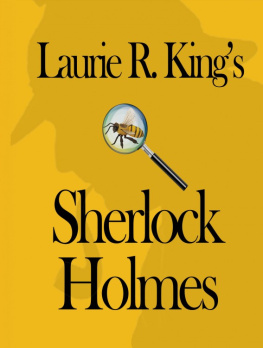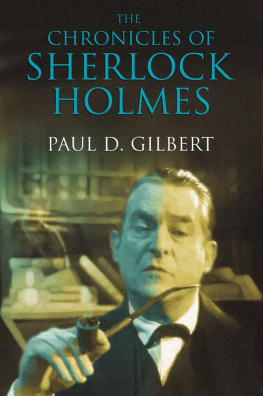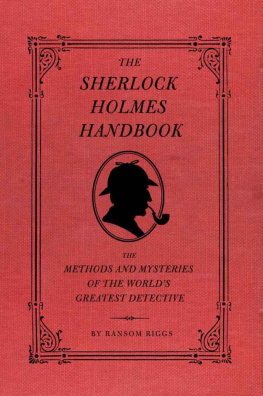Laurie King - The Beekeeper's Apprentice
Here you can read online Laurie King - The Beekeeper's Apprentice full text of the book (entire story) in english for free. Download pdf and epub, get meaning, cover and reviews about this ebook. genre: Detective and thriller. Description of the work, (preface) as well as reviews are available. Best literature library LitArk.com created for fans of good reading and offers a wide selection of genres:
Romance novel
Science fiction
Adventure
Detective
Science
History
Home and family
Prose
Art
Politics
Computer
Non-fiction
Religion
Business
Children
Humor
Choose a favorite category and find really read worthwhile books. Enjoy immersion in the world of imagination, feel the emotions of the characters or learn something new for yourself, make an fascinating discovery.

- Book:The Beekeeper's Apprentice
- Author:
- Genre:
- Rating:5 / 5
- Favourites:Add to favourites
- Your mark:
- 100
- 1
- 2
- 3
- 4
- 5
The Beekeeper's Apprentice: summary, description and annotation
We offer to read an annotation, description, summary or preface (depends on what the author of the book "The Beekeeper's Apprentice" wrote himself). If you haven't found the necessary information about the book — write in the comments, we will try to find it.
The Beekeeper's Apprentice — read online for free the complete book (whole text) full work
Below is the text of the book, divided by pages. System saving the place of the last page read, allows you to conveniently read the book "The Beekeeper's Apprentice" online for free, without having to search again every time where you left off. Put a bookmark, and you can go to the page where you finished reading at any time.
Font size:
Interval:
Bookmark:
Laurie R. King
THE BEEKEEPER'S APPRENTICE
Or
On the Segregation of the Queen
For another M.R., my mother,
Mary Richardson
Editor's preface
The first thing I want the reader to know is that I had nothing to do with this book you have in your hand. Yes, I write mystery novels, but even a novelist's fevered imagination has its limits, and mine would reach those limits long before it came up with the farfetched idea of Sherlock Holmes taking on a smart-mouthed, half-American, fifteen-year-old feminist sidekick. I mean, really: If even Conan Doyle hungered to shove Holmes off a tall cliff, surely a young female of obvious intelligence would have brained the detective on first sight.
However, that doesn't explain how this story came into print.
It began several years ago, when the UPS delivery woman came barreling down the driveway and, somewhat to my surprise, began to unload not the order of vegetable seeds I was expecting but a very large, heavily strapped cardboard box that must have stretched UPS's weight restrictions to the limit, because she had to use her dolly to maneuver the thing onto my front porch. After questioning her to no avail and checking carefully that the address on the box was indeed mine, I signed for it and went to get a kitchen knife to cut the tape. I ended up cutting considerably more than the tape, and when I had finished hacking away the cardboard I was ankle-deep in scraps; that knife has never been the same.
Inside was a trunk, a large and much-abused, old-fashioned metal traveling trunk, complete with stickers from hotels familiar and unlikely. (Could there be a Ritz in Ibadan?) Someone had thoughtfully fastened the key into the padlock with a length of Scotch tape, so I removed the tape and turned the key, feeling somewhat like Alice confronted with a "Drink me" bottle. As I stood looking down at the jumbled contents, my curiosity began to take on alarming overtones. I rapidly pulled back my hand and stood away from the trunk, thoughts of madmen and stalk ers standing out in my mind like newspaper headlines. I went down the stairs and around the house fully intending to call the police, but when I went in the back door I stopped to make myself a cup of coffee first, and when it was in the cup I walked through the house to look cautiously out the window at the dented metal and the gorgeous purple velvet that lay inside it, and I saw that one of the cats had curled up on top of the velvet. Now, why a sleeping cat should cause fears of explosive devices to fade so quickly I cannot think, but it did, and I was soon on my knees, elbowing the cat out of the way to examine the contents.
They were very strange. Not taken by themselves, but as a collection, there was neither rhyme nor reason: some articles of clothing, including the beaded velvet evening cloak (with a slit near the hem), a drab and disreputable man's bathrobe or dressing gown, and a breathtaking gossamer wool-and-silk embroidered Kashmiri shawl; a cracked magnifying lens; two bits of tinted glass that could only be a pair of peculiarly thick and horribly uncomfortable contact lenses; a length of fabric that a friend later identified as an unwrapped turban; a magnificent emerald necklace, a weight of gold and sparkle that rode my throat like wealth personified until I unhooked it and carried it inside to thrust beneath my pillow; a man's emerald stickpin; an empty matchbox; one carved ivory chopstick; one of those English railway timetable books called ABC for the year 1923; three odd stones; a thick two-inch bolt rusted onto its nut; a small wooden box, ornate with carving and inlay depicting palm trees and jungle animals; a slim, gold-leaf, red-letter King James New Testament, bound in white leather that had gone limp with use; a monacle on a black silk ribbon; a box of newspaper clippings, some of which seemed to deal with crimes committed; and an assortment of other odds and ends that had been pushed in around the edges of the trunk.
And, right at the bottom, a layer of what proved to be manuscripts, although only one was immediately recognizable as such, the others being either English-sized foolscap covered top to bottom with tiny, difficult writing or the same hand on an unwieldly pile of mismatched scrap paper. Each was bound with narrow purple ribbon and sealed with wax, stamped R.
Over the next couple of weeks I read through those manuscripts, all the time expecting to find the answer to the puzzle of who had sent them to me, waiting for it to leap out like some written jack-in-the-box, but I found nothing nothing, that is, but the stories, which I read with equal parts enjoyment and eyestrain.
I did try to trace the shipper through UPS, but all the agent at the New York office where the parcel had originated could tell me was that a young man had brought it in, and paid cash.
With considerable puzzlement, then, I folded the cloak, dressing gown, and manuscripts away and stashed the trunk in my closet. (The emeralds I put in a safe-deposit box at the bank.)
There it sat, month in and month out, for some years, until one bleak day after a too-long series of bleak days when nothing would grow under my pen and money prssures loomed, I remembered with a stir of envy the easy assurance of the voice from the manuscripts in the back of my closet.
I went to the trunk and dug out one of the piles of paper, took it to my study to read again, and then, motivated by despair as much as the roof that was leaking around my ears, set about rewriting it. Shamefaced, I sent it to my editor, but when she rang me some days later with the mild comment that this didn't read like my other stuff, I broke down and confessed, told her to mail it back to me, and went back to staring at a blank page.
The following day she called again, said that she'd had a consultation with the firm's lawyer, that she really liked the story, though she wanted to see the original, and that she'd like to publish it if I were willing to sign my life away in waivers should the actual author appear.
The battle between pride and roof repairs was over before it began. I do, however, have some self-esteem, and still considered the narratives in my possession, as I said, farfetched.
I don't know how much truth there is in them. I don't even know if they were written as fiction or fact, though I cannot rid myself of the feeling that they were meant as fact, absurd as it may be. However, selling them (with disclaimer) is preferable to selling that gorgeous necklace I will probably never wear, and surely if selling the one is acceptable, so is the other.
What follows is the first of those manuscripts, unadorned and as the writer left it (and, presumably, sent it to me). I have only tidied up her atrocious spelling and smoothed out a variety of odd personal shorthand notations. Personally, I don't know what to make of it. I can only hope that with the publication of what the author called On the Segregation of the Queen (such a cumbersome title she was obviously no novelist!) will come, not lawsuits, but a few answers. If anyone out there knows who Mary Russell was, could you let me know? My curiosity is killing me.
Laurie R. King
As the result of no small effort in the stacks of the University of California library I have identified the quotations with which the author prefaced her chapters. They come from a 1901 philosophical treatise on beekeeping by Maurice Maeterlinck, entitled The Life of the Bee.
PRELUDE: AUTHOR'S NOTE
To this spot a sort of aged philosopher had retired.
Here he had built his refuge, being a little weary of interrogating men.
Dear Reader,
As both I and the century approach the beginnings of our ninth decades, I have been forced to admit that age is not always a desirable state. The physical, of course, contributes its own flavour to life, but the most vexing problem I have found is that my past, intensely real to me, has begun to fade into the mists of history in the eyes of those around me. The First World War has deteriorated into a handful of quaint songs and sepia images, occasionally powerful but immeasurably distant; there is death in that war, but no blood. The twenties have become a caricature, the clothing we wore is now in museums, and those of us who remember the beginnings of this godforsaken century are beginning to falter. With us will go our memories.
Font size:
Interval:
Bookmark:
Similar books «The Beekeeper's Apprentice»
Look at similar books to The Beekeeper's Apprentice. We have selected literature similar in name and meaning in the hope of providing readers with more options to find new, interesting, not yet read works.
Discussion, reviews of the book The Beekeeper's Apprentice and just readers' own opinions. Leave your comments, write what you think about the work, its meaning or the main characters. Specify what exactly you liked and what you didn't like, and why you think so.







